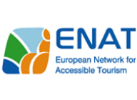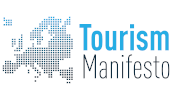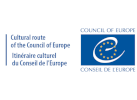FEG ExCo Deputy & FEG Trainer
How Qualified Tourist Guides can Help Alleviate Overtourism

There is nothing more rewarding than getting flights booked for a destination long dreamt of and looking forward to a few days or a few weeks of relaxation. Experiencing new places, new foods, new historic and cultural environments, new customs and religious observances opens the mind and offers stimulation. Enjoyment, leisure, a break from the everyday life and responsibility, is what all of us seek for our holiday breaks.
Local communities see tourism as a way of bringing growth, promote local industries, help conserve the environment and restore and protect historic environments and cities. State governments are particularly keen on tourism as it is an active industry that can provide employment in often disadvantaged regions, generate revenue via taxes and services and increase the profile of the country to an international audience.
These are some of the reasons why tourism since the 1960s has been expanding with growth of at least 6% year on year.
<
Unesco and the International Year of Sustainable Tourism ©en.unesco.org
All the above paint a very rosy picture, however the last few years have seen a change in attitude towards visitors.
Cheaper international flights; increased media coverage for “must see” or “bucket list” destinations; promotion of the same honeypot sites (Venice, Amsterdam, New York, Kyoto, Dubrovnik etc); expansion of cruise tours and construction of mega – cruise liners; technological advances which promote renting of non-traditional accommodation (Airbnb, apartment lets); increased demographics (there are now people around the world than ever before): these are the most important reasons why local communities are becoming disenchanted with tourism and visitors alike.

Overtourism Dubrovnik © responsibletourism.com
Since 2015 the term “overtourism” is used increasingly to describe the negative impacts of tourism. It is used to explain the overcrowding or congestion of certain places and the conflicts between local and visitors of these tourist destinations. In short it means too many visitors to a particular destination. It can affect not only cities but also rural areas and national parks. Amsterdam a city of about a million residents receives close to 15 million visitors every year. In Iceland, the popular TV series “The Game of Thrones”, has been credited with an increase visitors from 500,000 in 2010, to more than 2 million.
Overtourism is not a new phenomenon. What is new is the resentment of local residents and demonstrations against visitors that have become more wide spread. Reacting to negative local feelings, such as “Tourists go home” graffiti, many local authorities have sought to increase fees for visitors or to limit the number of visitors. Venice announced the introduction of a new Tourist tax of 3 Euro to start from September 2019. Other cities such as Amsterdam and Barcelona are considering the same.
As tourist guides we are at the forefront of all these issues. Not only we are interact every day with visitors and we hear their complains and views, we are also local residents who have to live and work in these areas of increased tourism. Not only we can see both sides of the coin we can a major force in alleviating overtourism.

Delphi guided tour © FEG feg-touristguides.org
We all have anecdotes that we can share.
Our clients complain about the long lines they have to wait, the crowding, the increased prices and not-value-for-money experience they receive. They are often unaware of the constraints of certain attractions and sometimes have been promised access to areas that are simply not accessible. This could be because of bad planning by tour operators, lack of local knowledge, or simply a prearranged schedule that does not take into account their individual needs, interests, physical conditions and strength. It is up to us as tourist guides to enhance their experience, make sure that visits run smoothly and iron out any problems, while at the same time inform them and present the local point of view. Our area-specific knowledge is invaluable in helping promote less crowded and off the beaten track areas, the only remedy to overtourism.
In an increasingly overcrowded market, tour operators are under pressure to reduce prices or to make programmes more competitive by adding attractions while limiting the visit time. Often their offices are located in other countries and have no direct knowledge of the cities or areas they promote, hence no knowledge of traffic constraints, road closures, geographical peculiarities, visitor numbers. Again it is up to us to explain, to check the feasibility of delivering the suggested programme, distances of venues and opening hours and offer sustainable alternatives.
As professionals we also have to deal with the local regulations or the lack of. Our profession is often muddled with untrained practitioners whether they are “free tours”, or “volunteers”, or self-taught guides. Blurring the lines leads to visitors paying much more in tips to a “free tour”, without securing their customer rights by having a non-qualified, non-taxed, non-insured person guiding them. Even in regulated countries it is very difficult for the laws to be enforced and for professional tourist guides to be acknowledged and promoted. This means that our profession is misrepresented and often we are considered as part of the problem rather than a possible solution. However our training and expertise set us apart and furnish us with the necessary skills to operate in all areas, not just the well trodden tourist attractions.
Tourist guides are a very small part of the wider tourism industry. We are however uniquely positioned as we are both the local representatives of our destinations to our visitors and also experience the impact these visits can have.
The European Federation of Tourist Guide Associations (FEG) has been actively promoting this unique position of tourist guides. FEG has been lobbying on a European level through participation in the Tourism Manifesto group and in consultative sessions on sustainable tourism. For FEG promotion of local tourist guides and acceptance of the area specificity of tourist guides is paramount. FEG has been championing the professional qualifications its members hold, via the recognition and adoption of the EN15565:2008 standard for their professional training. In addition FEG provides training courses on more specialised subjects such as: online culinary certification, certification for guides to work with people with learning difficulties, guiding in Silver Tourism, Cruise Line guiding, Accessible Tourism for All, to name but a few. Even in our annual FEG European tourist guide meetings there is an effort to promote and showcase less known destinations (Faro, Heraklion, Brno) and these meetings take place in the off-peak season.
As overtourism issues become more and more visible, state governments and local authorities will be under pressure to tackle the problem. Tourist guides should be ready to deal with the negative impacts but place themselves in the position to maximise the positives. Our tourist guides associations should work together with FEG to embrace and promote sustainable tourism.










